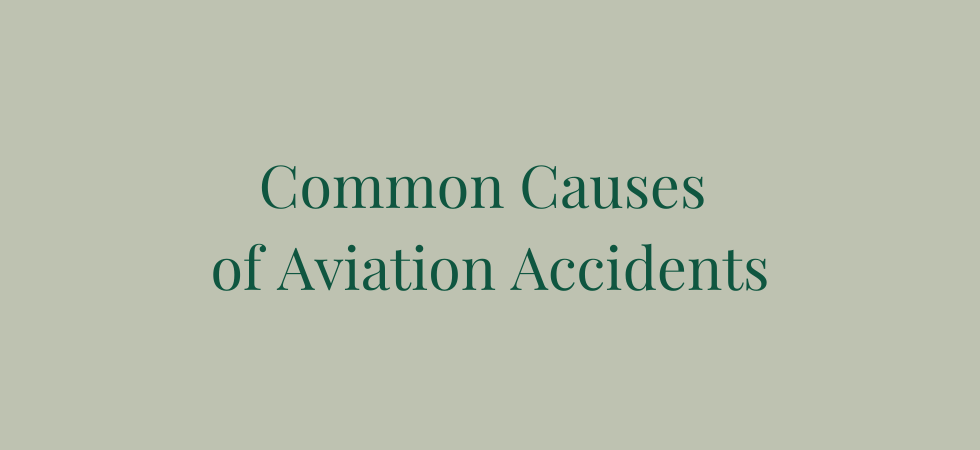Aviation accident law covers both major air carriers (commercial airlines) and general aviation accidents. General aviation includes charter flights, small planes, pleasure crafts, large business jets, helicopters, and hang gliders. It is a combination of personal injury and wrongful death litigation that involves complex aviation laws, regulations, and international treaties. It is so intricate that only a select group of lawyers practice aviation law.
In the last 40+ years, Clifford Law Offices has represented victims and their families in nearly every major commercial airline crash in the U.S., as well as numerous small plane crashes.
What are Common Causes of Aviation Accidents?
-
- Bad weather. While no one is accountable for causing bad weather, a pilot or aviation company could be liable for negligently failing to keep everyone on the plane safe. Examples include underestimating the dangers, ignoring proper procedures in a storm or fog, or even failing to check the weather.
- Equipment malfunction. Often, aviation accidents stem from equipment and mechanical failures, such as engine failure or structural design flaws. The owner of the plane could be liable if the malfunction arose due to negligent maintenance. A part manufacturer could be liable if the equipment had a defect.
- Pilot errors. Humans can cause aviation accidents through mistakes such as failure to follow proper take-off/landing procedures, premature descent, excessive landing speed, missed runways, failure to refuel, navigation mistakes, and making dangerous miscalculations.
- Support team negligence. This could include Flight Service Station employees, Federal Air Traffic Controllers, or a third party’s selection of a carrier.
- Sabotage. Terrorist activity or a passenger intentionally harming a pilot, another passenger, or the plane could be examples of sabotage.
Regardless of what caused the aviation accident, such tragedies should never happen.
How common are plane crashes?
In general, when looking at the overall fatal crash rate, the numbers show that flight is one of the safest forms of travel. The National Safety Council puts the odds of dying as a passenger of an airplane as 1 in 188,106 – the second safest form of travel behind railway travel (1 in 243,765). However, compared to other methods of travel, aviation crashes are much more fatal. From 1982 – 2018, 20% of all aviation crashes and incidents involved at least one fatality. For comparison’s sake, less than 1% of U.S. car accidents are fatal.
Plane crashes are most likely to occur in single-engine planes, typically in general aviation rather than commercial airlines. In fact, 79% of all aircraft accidents and 72% of fatal crashes involved single-engine planes. Learn more in our analysis of 37 years of airplane crash data.
How can we help?
Clifford Law Offices is one of the nation’s premier aviation law firms, and our aviation accident practice group is among the most experienced in the world. Currently, we are representing the families of more than 70 victims who lost loved ones in the Boeing 737 Max8 crash in Ethiopia.
We are a trusted resource for aviation law. Our lawyers have garnered some of the most impressive case results for aviation accident victims on record in the U.S., obtaining results ranging from $450,000 to $110 million.
Regardless of the aviation’s explanation of events, please speak with our lawyers to learn whether negligence was a factor. We are here to protect you, not an airline or insurance company. Call us today at 312-899-9090 or fill out this form to get a free and straightforward review of your case.

